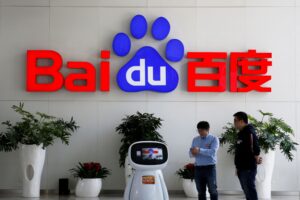Tesla Inc (NASDAQ: TSLA) has halted plans to import components from China for its Cybertruck and Semi electric truck following President Donald Trump’s decision to ramp up tariffs on Beijing. This move, reported by Reuters on Wednesday, could disrupt Tesla’s ambitions to expand its autonomous vehicle and truck segments—key growth drivers championed by CEO Elon Musk.
Key Points
-
Suspension of Imports:
-
Tesla has suspended importing critical components from China for its Cybertruck and Semi electric truck projects.
-
This decision comes after the U.S. government increased tariffs on Chinese goods, with cumulative tariffs reaching 145% earlier in April.
-
-
Tariff Impact:
-
Tesla managed to absorb previous additional costs when Trump imposed a 34% tariff on Chinese imports.
-
However, the recent tariff hikes, coupled with an extra 25% levy on imported automobiles and automobile parts, have now made the cost structure unsustainable for Tesla.
-
-
Implications for Growth:
-
The suspension could impede Tesla’s progress toward building advanced autonomous vehicles and electric trucks—areas Musk has repeatedly identified as crucial for future growth.
-
Although the company manufactures all U.S.-sold vehicles domestically, it relies on key components from global supply chains, particularly China.
-
-
Broader Challenges:
-
Tesla continues to navigate declining sales amidst an aging lineup and fierce competition from Chinese EV manufacturers, as consumer preferences also shift towards hybrid solutions.
-
The company is additionally facing a consumer boycott in Europe over CEO Elon Musk’s political affiliations, adding further headwinds.
-
Strategic Considerations
-
Cost Pressures:
-
With rising tariffs making it increasingly expensive to import components, Tesla’s ability to maintain competitive cost structures for its next-generation vehicles is under pressure.
-
-
Supply Chain Adjustments:
-
The suspension reflects a broader trend of companies re-evaluating their supply chains amid uncertain trade policies between the U.S. and China.
-
Tesla will need to either source alternative components or adjust production strategies to mitigate the impact of these tariffs.
-
-
Investor Outlook:
-
Tesla’s decision may offer short-term relief in cost management, but it underscores the challenges inherent in navigating a fragmented global trade environment.
-
Investors will be closely monitoring how these supply chain disruptions affect Tesla’s longer-term production and sales performance.
-
For In-Depth Valuation Analysis
To gain further insights into how these developments might affect Tesla’s financial performance, investors can utilize the
🔗 Advanced DCF – Discounted Cash Flow API from Financial Modeling Prep. This tool offers a detailed view of Tesla’s valuation metrics and future cash flow projections, essential for understanding the potential impact of rising tariffs and supply chain adjustments.




